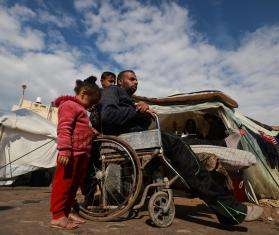In Tajikistan’s capital, Dushanbe, the project team has started treating a tuberculosis (TB) patient with Delamanid for the first time. Delamanid is one of the first new TB treatment medicines to be released in over 50 years. The ability to treat using the new medicine follows several months of preparation and negotiation with the Ministry of Health and its counterparts.
After viewing a Doctors Without Borders/ Médecins Sans Frontières (MSF) presentation that detailed the successful use of Delamanid to treat multidrug-resistant (MDR-TB) and extreme drug-resistant tuberculosis (XDR-TB), the Ministry of Health of Tajikistan allowed MSF to bring the new medications into the country through a humanitarian import waiver. MSF’s push to import Delamanid and Bedaquiline [another TB medication] for the first time into Tajikistan added significantly to the country’s successful results this past year.
Delamanid and Bedaquiline offer patients with MDR-TB and XDR-TB, who would otherwise have no other alternatives, a more effective treatment and reason for hope. In high burden MDR-TB countries like Tajikistan, access to new TB medicines is essential.
The introduction of new TB medicines into the National TB Program of Tajikistan is a key objective of the MSF project in Dushanbe. Ultimately, this will lead to wider use of new medicines in the country and throughout the region due to improved collaborations with other MSF projects in eastern Europe and central Asia.
Until MSF began operations in 2011, children with drug-resistant tuberculosis —those whom first-line treatment fails—did not receive the more intensive, potentially lifesaving treatment needed for this form of the disease. MSF is working with the Ministry of Health in Tajikistan to treat pediatric TB cases and their family contacts, whenever possible on an outpatient basis, with nutritional and psychosocial support to help them adhere to their difficult regimens.
In order to deliver the appropriate treatment the project also introduced drug compounding [combining drugs to create a formulation particular to a patient’s needs] to make pediatric formulations of MDR-TB drugs.










